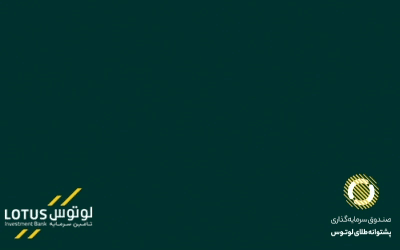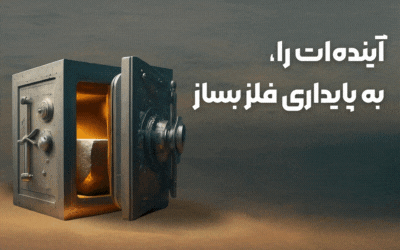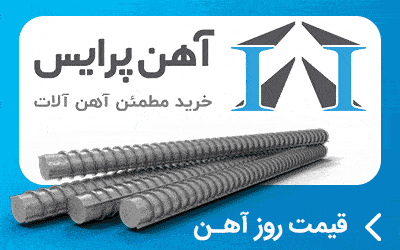Iran-Iraq Joint Chamber of Commerce was established in ۲۰۰۳ after the overthrow of Saddam Hussein. Increasing economic interactions and laying the ground for the economic ties between the two countries was its main objective. It is ranked the first among other Iran's joint chambers of commerce in terms of export volume and the second after China in terms of the amount of interactions.
According to Dr. Sanjabi Shirazi, the secretary general of Iran-Iraq Joint Chamber of Commerce, increasing trade and economic ties is one of the ways to prevent from distance between the countries. It clarifies the philosophy of establishing Iran-Iraq Joint Chamber of Commerce. The following is an interview conducted with Dr. Sanjabi in terms of the problems of this chamber and strategies to remove them in a way that the economic activists can have more presence in the growing market of Iraq.
What is the main responsibility of Iran-Iraq Joint Chamber of Commerce?
The main objective behind establishing Iran-Iraq Joint Chamber of Commerce has been increasing economic interactions and laying the ground for the economic ties between the two countries. Different issues in the political, cultural, security and other fields surely affect the bilateral economic relations. One of the ways to prevent from distance between the countries is increasing trade and economic ties, both in the field of micro and macro economies. This chamber can play this part well as the representative of private and local sector which lays the ground for boosting bilateral ties. To know the significance of the chamber's responsibilities, it should be noted that the private sector accounts for some ۹۳ percent of the economic interactions between the two countries.
Please brief us about the history of this chamber?
Iran-Iraq Joint Chamber of Commerce was established in ۲۰۰۳ (after the overthrow of Saddam Hussein). Its first round continued its activity based on the charter compiled in ۲۰۰۱and it has some ۱۵۰۰ members in its fourth round at the present. It is ranked the first among other Iran's joint chambers of commerce in terms of export volume and the second after China in terms of the amount of interactions.
What measures has the chamber taken for increasing the amount of exports?
I should say that we used to consider our responsibility in this chamber first identifying and removing the barriers and then laying the ground for relations. But, quality control has been our main concern over the past ۶ years, because the quality of our products and services can be the main factor of our economic activists' success. This point should be of course mentioned that some persons damage the reputation of Iran by misusing in this due. We had sometimes many problems such as lack of infrastructures in the border markets, transportation and visa and systematic barriers slowed down the process on the other side. While, now our only problem is the issue of direct transport of the goods from Iran to Iraq. Of course, some agreements have been signed between the two countries for direct transport of some goods such as dairy products with expiration date, but it is not still common in all cases. We hope that this problem is removed soon.
In terms of exporting technical and engineering services, we have two main problems. One of them was the Iranian companies' unwillingness for presence in Iraq due to lack of trust about existence of enough security in that country. In this due, we held some tours through cooperation with Iraqi government and remove this concern to some extent. The second problem was the process of registering tender documents which is now conducted by the Iraqi agent in Iran. The problem of registration has been removed in this way as well.
Iranians essentially required registering in Iraq, because our products were not in the list accepted by the Iraqi ministries. These barriers have been removed basically through governmental approaches.
What are the other executive problems in economic cooperation between the Iranian and Iraqi activists and experts?
Over ۶۵ percent of our transactions with Iraq are conducted in the form of peddling in the border markets. It means that the currency used for transactions is rial and no foreign currency is obtained. We should organize the groups in this due, help the companies stop peddling and enter the Iraqi market directly instead. We should have laid the necessary grounds and organized the preliminary measures for registering the brand, name of product, and standards etc. In fact, our executive programs have been in the order of: ۱- Shifting from peddling to international trade ۲- Using foreign currency instead of rial in transactions ۳- Try to make Iranian goods known in the global markets, of course through offering proper price and conducting good advertisements ۴- Give some part of the profit to the Iraqi side as the representative or in other ways, and meanwhile preventing from the exports of low-quality product.
What measures have been taken for removing these problems?
One of the proper measures taken in this due was issuing the green page in the name of the main exporter. As the export incentive was for the main exporter, they did not have enough motivation for stopping the peddling activity. Standards Organization made relation with the Iraqi government, enacted and enforced some rules that based on them standard emblem was required for each expound-bound commodity on one side and on the other side, BB and SGS Auditing Companies conduct the auditing task , so the high-quality Iranian product is exported to the market of Iraq. Transport of passengers, fragile commodities, cement in bulk, and refrigerator cars is direct to Iraqi market and related agreement has been signed and performed in this year. Although as the result of peddling activities, the traders receive the money at the zero point and then they enter the market, it is not economic for the exporter that he himself does this task. It should be also mentioned that the tariffs in Iraq are for the trucks not the
goods. The amount of commodity a truck carries in Iraq doubles that of a truck in Iran.
Another cultural issue that prevents from developing economic activities is that Iranians essentially do not take the risk of entering the Iraqi market. Also, Iran accounts for some ۹۷ percent of Iran-Iraq trade volume and as the transportation vehicles return empty to the country, the costs are doubled. All of these problems have made us try and plan for increasing the amount of products exported from Iran.
As you know, there have been over ۱۰۰ memorandums of understanding between Iran and Iraq since ۲۰۰۴, but none of them have come into effect. As the memorandums of understanding do not necessarily take effect, has the chamber adopted any solution in this due?
The Iraqis have recently announced that they are ready to put the agreements into effect. Also, a delegation of Iraqi officials is due to come to Iran in two next months and one of their programs is signing the contracts and the other one is about the standard cooperation. We hope that both of them are achieved in this trip.
But in terms of the internal contractors, unfortunately, our banking system is not cooperating and we have not financial institutes that can make investment out of the current bureaucracy. Anyway, I believe that for exporting commodity or technical-engineering services, we should conduct international activities strongly.
Of course, in the field of exporting technical-engineering services, if the financial sources are provided for the contractor at the time of entering Iraq and getting project there, I promise that we will have big jumps and even, the volume of our technical-engineering service exports to Iraq may triple.



















ارسال نظر